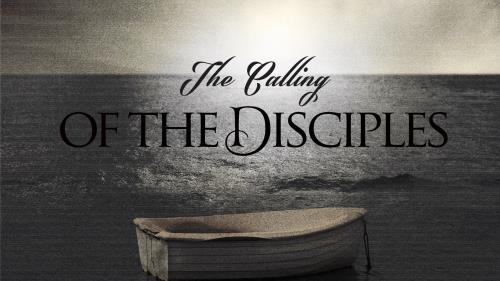-
The Rhythm Of Christianity
Contributed by Isaac Butterworth on Nov 28, 2017 (message contributor)
Summary: We are called by Love, nurtured in Love, and sent to love.
THE RHYTHM OF CHRISTIANITY
Matthew 9:9-13, 18-26
9 As Jesus went on from there, he saw a man named Matthew sitting at the tax collector’s booth. "Follow me," he told him, and Matthew got up and followed him.
10 While Jesus was having dinner at Matthew’s house, many tax collectors and "sinners" came and ate with him and his disciples. 11 When the Pharisees saw this, they asked his disciples, "Why does your teacher eat with tax collectors and ’sinners’?"
12 On hearing this, Jesus said, "It is not the healthy who need a doctor, but the sick. 13 But go and learn what this means: ’I desire mercy, not sacrifice.’ For I have not come to call the righteous, but sinners."
. . .
18 While he was saying this, a ruler came and knelt before him and said, "My daughter has just died. But come and put your hand on her, and she will live." 19 Jesus got up and went with him, and so did his disciples.
20 Just then a woman who had been subject to bleeding for twelve years came up behind him and touched the edge of his cloak. 21 She said to herself, "If I only touch his cloak, I will be healed."
22 Jesus turned and saw her. "Take heart, daughter," he said, "your faith has healed you." And the woman was healed from that moment.
23 When Jesus entered the ruler’s house and saw the flute players and the noisy crowd, 24 he said, "Go away. The girl is not dead but asleep." But they laughed at him. 25 After the crowd had been put outside, he went in and took the girl by the hand, and she got up. 26 News of this spread through all that region.
I
There are a lot of things here that are not what they should be. For one thing, Matthew is wasting his life. And that’s only part of the problem. As a tax collector in his day, he is colluding with the occupation Roman government in gouging people out of their assets. He is what we might call a sell-out. And he’s doing it to feather his own nest.
The Pharisees are not much better. They are laboring under a serious delusion about God, which affects the way they see other people. And how they treat them. Then, of course, we have a woman who is victimized by a chronic illness, and a father who has lost his little girl.
Someone has said, “Disease has no energy save what it borrows from the life of the organism.” These people are being consumed by an intrusive inner adversary. Picture Matthew sitting at the tax collector’s booth day after pointless day, the very life force within him being devoured by his choice to remain there. Did I say choice?
If you had asked him, he might have said, “I have no choice. I’m stuck here. What else can I do. This is the hand dealt me. How can I change?”
Interesting that you should ask, Matthew. Because you are about to awaken to a new possibility. But more on that later.
As for the Pharisees, look how diseased their thinking is. They are locked into a pattern in which they justify themselves by condemning others. Sinners and tax collectors can’t be candidates for God’s attention. No. You have to try hard, work at it, be good, and not make any mistakes.
Can you imagine what living with that view of God would be like? Some of us don’t have to imagine; we are very much like the Pharisees on this point. We, too, see God as a harsh, distant, perhaps even threatening, force that demands perfection. But look at the effect. That road doesn’t lead to the ball. There is no dance in the step; it is more like a forced march.
II
When it comes to the human condition, we all dance like we have two left feet. We are all a part of a fallen humanity. Even if we consider ourselves people of faith.
We too have misconceptions about God, and we too have misperceptions about other people. Like Matthew, we may think that other people are mere objects to be treated without consideration and disposed of when we’re through with them. Like the Pharisees, we may see God in a way that serves only our own interests, and we may ignore or deny the possibility that God is bigger than we can possibly imagine. When we make either mistake, either Matthew’s or the Pharisees’, we’re not just missing the beat. We can’t even hear the music.
In his book, Metamorpha, Kyle Strobel tells about a friend of his whose name is Cassie. Cassie was a first-year seminary student whose view of God had never been challenged. Suddenly, she found herself in a setting in which it seemed to her that her image of God was being dismantled. It was as though the God she knew and loved was being, in her words, “smashed to pieces.”

 Sermon Central
Sermon Central



